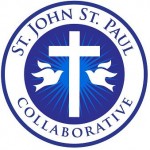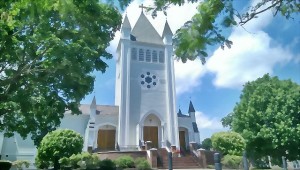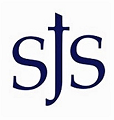On Wednesday, November 2 and Thursday, November 3 Deacon Tom Smith will be training altar servers in the upper church from 3:30-4:45 pm. Any child who has made his or her First Communion is eligible to serve. Interested children should attend both sessions, and servers must be available to serve the following Saturday or Sunday (11/5 or 11/6) at Mass. Please contact Anne Connors, 781-237-0565 or anneconnors@verizon.net to register or with any
questions.
Altar Server Training – Nov. 2nd & 3rd
Comments Off on Altar Server Training – Nov. 2nd & 3rd
Posted in Important Announcements
ParishPay – A New Automated Giving Program for St. John’s
In recent years, the number of people who manage their finances online has increased dramatically. Many cite convenience and control as their primary reasons for moving to automated payments and online account management – less time and paper wasted writing checks and mailing envelopes, less chance for late or missed payments, better budget planning and oversight, and helpful year-end reporting.
St. John’s is pleased to announce a new Automated Giving program, ParishPay, that offers not just convenience and control, but something even better – a more effective way to support our Parish and sustain our vibrant spiritual home. Weekly offertory collections are not consistent, a reflection not only of economic factors but the variations in Mass attendance that occur with vacations, holidays, and other life events. A significant Automated Giving program will provide the Parish with more consistent and stable contributions, which will enhance our ability to budget and manage our resources.
With ParishPay, you can set up a secure, automatic monthly contribution from a checking, savings, or credit card account to replace your weekly offerings. ParishPay can also be used for special collections, Grand Annual Appeal contributions, and special celebrations (like Christmas and Easter.) There is no cost to you to participate in this program, and you can start, stop, or adjust your contributions privately via secure web access. Find out more by visiting our Automated Giving page – you’ll find complete information and instructions for signing up and getting started. It’s easy, it’s safe, and best of all – it’s better for St. John’s.
Comments Off on ParishPay – A New Automated Giving Program for St. John’s
Posted in Important Announcements
Forty Hours Devotion Coming Soon . . .
“Of all the devotions that of adoring Jesus in the blessed sacrament is the greatest after the sacraments.” – Saint Alphonsus Liguori
Prayer nourishes the soul and and opens our hearts to God’s graces. There is nothing quite like personal and private prayer before the Real Presence of Christ in the Blessed Sacrament. Therefore we invite all to the Forty Hours Adoration of Christ in the Eucharist beginning Thursday October 27 and continuing through Saturday October 29. Hours of devotion will be from 7:30am each day, closing at 10pm Thursday and Friday, and just before the 5pm Vigil Mass on Saturday, October 29.
Comments Off on Forty Hours Devotion Coming Soon . . .
Posted in Important Announcements, Special Events
From the Parish Liturgical Commission 10/16 – Introductory Rites
The Mass begins with Introductory Rites that include the Entrance, the Greeting, the Penitential Act, the Gloria and the Collect. Together they create a beginning, an introduction and a preparation. Their purpose is to ensure that the faithful who come together as one establish a communion and are prepared to listen to the word of God and to celebrate the Eucharist. The first words we hear from the priest celebrant are “The Lord be with you.” And, as was described in last week’s bulletin, the new response (to be inaugurated on the first Sunday of Advent, November 27, 2011), will be “And with your Spirit.”
The Penitential Act follows the Sign of the Cross and the Greeting. There are several options for the Penitential Act. There is the three part call and response prayer: “Lord, have mercy,” “Christ, have mercy,” and “Lord, have Mercy.”
(In Greek: “Kyrie, eleison.” “Christe, eleison.” and “Kyrie eleison.”) Although these specific words will not be changing, the lead in prayers have some changes.
In some Masses, we collectively pray a longer prayer called the Confiteor (from the Latin for “I confess”). In the forthcoming edition of the Roman Missal, the following (in italics) will replace the opening sentences: I confess to
almighty God and to you, my brothers and sisters, that I have greatly sinned, in my thoughts and in my words, in what I have done and in what I have failed to do (striking the breast): Through my fault, through my fault, through my most
grievous fault; This new edition of the Confiteor attempts to provide a translation that is closer to the Latin version of the prayer, from which all vernacular translations come, and follows more closely an early English translation (1966) of the prayer, which was published after the Second Vatican Council.
On the Sundays outside the Seasons of Advent and Lent, on feasts and solemnities, and at special celebrations of a more solemn character, the Gloria is sung or said, following the Penitential Rite. The current version of the Gloria is a
somewhat abbreviated translation of its Latin source. The new translation (in italics), which is closer to the Latin edition of this prayer, is as follows:
Glory to God in the highest, and on earth peace to people of good will. We praise you, we bless you, we adore you, we glorify you, we give you thanks for your great glory. Lord God, heavenly King, O God, almighty Father. Lord Jesus
Christ, Only Begotten Son, Lord God, Lamb of God, Son of the Father, you take away the sins of the world, have mercy on us; you take away the sins of the world, receive our prayer; you are seated at the right hand of the Father, have mercy on us. For you alone are the Holy One, you alone are the Lord, you alone are the Most High, Jesus Christ, with the Holy Spirit, in the glory of God the Father. Amen.
One of the goals of the new translation of the Missal was to make clearer the links between the prayers of the Mass and the text of Scripture. A number of biblical verses are integrated into the Gloria, including Luke 2:14, John 1:29,
Revelation 15:3-4, Psalm 83:19, 1 Corinthians 8:6, and Philippians 2:11. When we pray the Gloria, we are praising God with the words of Scripture.
(Reference: From the United States Conference of Catholic Bishops website www.usccb.org/romanmissal)
This weekend we will be singing this revised translation of the Gloria. Be sure to have the sheet music handed out to actively participate in giving praise and glory to God!
REMINDER: Everyone is welcome and encouraged to attend an evening with Fr. Greg Hoppough, CS, on the New Translation of the Roman Missal. It promises to be an informative event presented by a gifted teacher who will address the questions you undoubtedly have. Monday evening, October 24 at 7:30 p.m. in the upper church.
An article by David Haas (composer of liturgical music) in the June-July 2011 edition of Ministry and Liturgy offers food for thought as we move forward through this time of change; http://rpinet.com/ministry/3805f1html
(David Haas has composed such familiar songs as “You are Mine”, “The Servant Song,” “We Have Been Told” and in his “Mass of Light”, the “Gloria”.)
Comments Off on From the Parish Liturgical Commission 10/16 – Introductory Rites
Posted in Parish Liturgical Commission
Tagged New Roman Missal
Host Families Needed for the 8:45am Family Mass
Be a “Host Family” at the 8:45am Family Mass! This is a wonderful way for your family to actively participate in the liturgy – children of all ages can have a role, whether by doing a reading themselves, accompanying a parent or older sibling as they read, bringing up the gifts, or simply processing with the family. As Host Family, you will:
- Process in with the Priest Celebrant
- Sit in the front pew
- Proclaim the First Reading (will be sent to you ahead of time)
- Read the Prayers of the Faithful (you may compose your own)
- Bring up the gifts of bread and wine
- Process out with the celebrant
Comments Off on Host Families Needed for the 8:45am Family Mass
Posted in Important Announcements, Volunteers Needed
Reminder: Book Discussion Group Thursday October 13 at 7:30pm
The AFFC Book Discussion Group will meet this Thursday, October 13 at 7:30pm in the Parish Center. This month’s selection: What Happened at Vatican II by John W. O’Malley. For more information, please click here to visit the Book Discussion Group page on the website.
Comments Off on Reminder: Book Discussion Group Thursday October 13 at 7:30pm
Posted in Adult Faith Formation, Book Discussion Group
Reminder: Program for Women – Tuesday November 8th, 6:30pm
Tuesday November 8th at 6:30pm in the Social Hall. This year’s theme: A Journey Into the Heart of Prayer in St. John’s Gospel. Through prayer, presentation and sharing, we will ponder how the core of faith is Love offered and accepted; how God invites us to imagine our lives as grounded in a Love beyond all imagining. Each month, come join us for this graced evening and bring one of your favorite recipes for a wonderful Pot Luck! All are welcome!
Comments Off on Reminder: Program for Women – Tuesday November 8th, 6:30pm
Posted in Adult Faith Formation, Important Announcements, Special Events
Special Presentation: “The New Translation of the Roman Missal” with Fr. Gregory Hoppough, C.S., Monday October 24th at 7:30pm
Please join us on Monday, October 24th at 7:30pm in the church for a presentation by Father Gregory Hoppough, C.S. on the new translation of the Roman Missal. With this new edition, which will be introduced during Advent, the structure of the Mass (the order of the elements, the actions of the priest celebrant, and so forth) remains unchanged, but the translation of the prayer texts will change to more closely reflect the original Latin texts. Don’t miss this opportunity to ask questions and learn more about the changes that are coming.
Fr. Hoppough is a professor of liturgy at Blessed John XXIII National Seminary in Weston. This presentation was organized by the Adult Faith Formation Commission and the Parish Liturgical Commission and promises to be a richly informative event given by a gifted speaker and teacher.
Comments Off on Special Presentation: “The New Translation of the Roman Missal” with Fr. Gregory Hoppough, C.S., Monday October 24th at 7:30pm
Posted in Adult Faith Formation, Important Announcements, Parish Liturgical Commission, Special Events
Announcement: Altar Server Training
On Wednesday, October 12 and Thursday, October 13 Deacon Tom Smith will be training altar servers in the upper church from 3:30-4:45 pm. Any child who has made his or her First Communion is eligible to serve. Interested children should attend both sessions, and servers must be available to serve the following Saturday or Sunday (10/15 or 10/16) at Mass. Please contact Anne Connors, (781)-237-0565 or anneconnors@verizon.net to register or with any questions.
Comments Off on Announcement: Altar Server Training
Posted in Important Announcements
Tagged New Roman Missal
From the Parish Liturgical Commission 10/19 – Words in Liturgy
Liturgical language is sacred, and aspires to deepen our encounter with Christ through what we pray, sing and hear. Understanding the words is important to our active participation in the Eucharist, the “source and summit” of our faith.
One of the goals of the new translation of the Missal was to make clearer the links between the prayers of the Mass and the text of Scripture. Some of the most noticeable changes reflect the words of the Bible more clearly. One of the first changes is at the greeting during the Introductory Rites of the Mass. At the
beginning of Mass the priest celebrant greets the people with the words, “The Lord be with you.” The people will respond, “And with your spirit.” Although this is a “new” response, it is really an ancient one! The first words come from a greeting of Boaz, the great-grandfather of King David: “Boaz…said to the harvesters, ‘The Lord be with you!’ and they replied, ‘The Lord bless you!’” (Ruth 2:4). The people’s response reflect the language of St. Paul. In Galatians, he says, “The grace of our Lord Jesus Christ be with your spirit…” (Gal. 6:18); the Second Letter to Timothy closes with a similar wish: “The Lord be with your
spirit.” (2 Tim. 4:22). The Letter to the Philippians ends with “The grace of the Lord Jesus Christ be with your spirit.” (Phil. 4:23). The new language more directly reflects the biblical understanding that, through Baptism, the Spirit of God dwells in us and unites us as one Body in Christ.
The United States Conference of Catholic Bishops (USCCB) provides an explanation about this change: Perhaps the most common dialogue in the Liturgy of the Roman Rite consists of the greeting Dominus vobiscum and et cum spiritu tuo. Since 1970, this has been translated as: “The Lord be with you.” “And also with you.” As a part of the revised translation of the Roman Missal the translation of the dialogue has been revised to read: “The Lord be with you.” “And with your spirit.” This is a more correct rendering of et cum spirtu tuo, and makes the English rendering more consistent with renderings of other languages. (The Italian: E con il tuo spirito, French: Et avec votre esprit, Spanish: Y con tu espiritu and German: Und mit deinem Geiste). In this response, the people assure the priest of the same divine assistance of God’s spirit and, more specifically, help for the priest to use the charismatic gifts given to him in ordination and in so doing to fulfill his prophetic function in the Church. (Sources: www.usccb.org/romanmissal and www.mysticalbodymysticalvoice.org)
Next weekend (October 15/16) we will be introduced to the changes that we sing in the Gloria. The current version which we pray, either sung or spoken, is a somewhat abbreviated translation of its Latin source. Our next bulletin insert will address these changes.
REMINDER: Fr. Greg Hoppough, CS, will be with us at 7:30 p.m. on Monday evening, October 24th. This promises to be a richly informative presentation given by a gifted speaker and liturgist. Don’t miss this opportunity to ask questions and learn more about the changes that are coming.
Additional information: An article by David Haas (composer of liturgical music) in the June-July 2011 edition of Ministry and Liturgy offers food for thought as we move forward through this time of change.
Comments Off on From the Parish Liturgical Commission 10/19 – Words in Liturgy
Posted in Important Announcements, Parish Liturgical Commission
Tagged New Roman Missal








